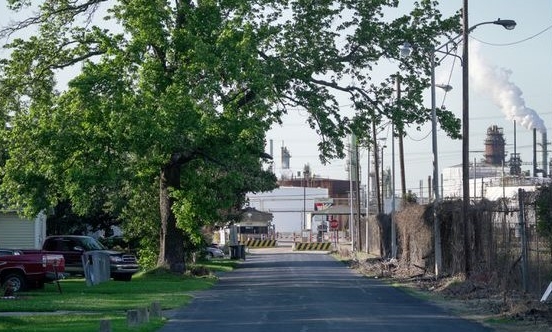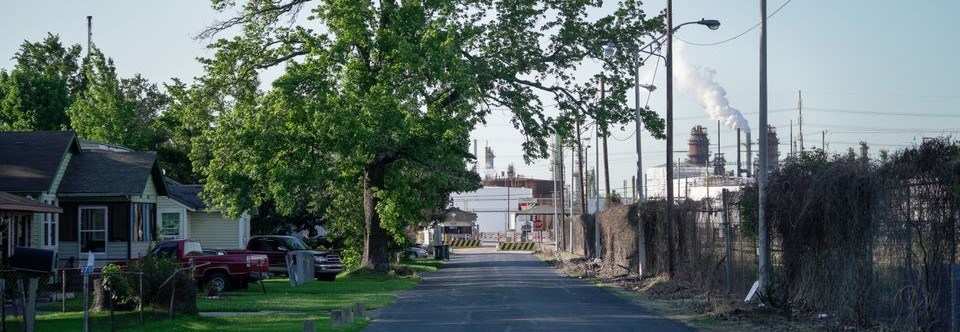Climate, Health and Equity Brief
Climate budget, corporate shenanigans and unequal exposure
June 4, 2021

The Climate, Health & Equity Brief is GMMB’s take on the week’s news on the current impacts of climate change. If you haven’t subscribed yet, you can do so by clicking here.
Hot Topic: Inching forward. President Biden’s 2022 budget proposal announced this week calls for more than $36 billion to fight climate change—$14 billion more than his 2021 budget. Primary climate spending would be directed toward clean energy innovation, transmission and storage efforts, advancing climate research, improving water infrastructure, retrofitting homes and federal buildings, and advancing environmental justice initiatives.
The announcement is welcome news, especially in light of new reports on the already-unfolding deadly impacts of climate change. One new study of 43 countries found that between 1991 and 2018, heat-related deaths in warm seasons increased by an average of 37 percent—and as much as 75 percent in some regions—due to climate change.
Another study found that despite improvements in air quality in recent decades, the rate of respiratory disease is four times greater among low-income Americans than wealthy Americans, even when rates of smoking are controlled for. As the study suggests, socioeconomic position—and in turn, the likelihood of living near highways and power plants—is among the leading factors in this disparity.
Despite the myriad harmful impacts of fossil fuels, a new report found that G7 nations pumped billions of dollars more into the fossil fuel industry than they have into clean energy during the COVID-19 pandemic while making promises for a green recovery. Fossil fuel support has included bailouts, measures to remove or downgrade environmental regulations and direct funding of oil, gas and coal projects.
And a new analysis found that in the U.S., ExxonMobil is the worst offender when it comes to harmful refinery emissions. The company’s three largest refineries—two in Texas, one in Louisiana, and two out of the three in majority-Black neighborhoods—are the nation’s top emitters of small particulate matter, the deadliest form of air pollution. The three refineries averaged eight times the emissions of the seven other refineries on the top ten list. And while rivals use newer technology invented and licensed by Exxon to reduce their emissions, Exxon itself has elected to continue using outdated technology—particularly in its Baton Rouge refinery—because of an EPA rule that exempts “catalytic crackers” that were built before 1976 from modern emissions standards. This week, Exxon lost at least two seats on its board of directors to an activist hedge fund seeking to force the firm to reckon with climate change.
Activism from within these companies—and the Biden Administration’s calls for massively increased investment in clean energy and climate research—offer some small hope that we can begin to turn the tide.
— Matt & Traci, GMMB
Health
A new study analyzing the impact of extreme heat in 43 countries revealed that between 1991 and 2018, 37 percent of heat-related deaths were caused by preventable climate-fueled warming. (The New York Times)
Unseasonably hot temperatures ravaging California’s Central and Sacramento valleys this week have exacerbated already extreme drought conditions, with Governor Gavin Newsom (D) declaring an official drought emergency in 41 of the state’s 58 counties. (Los Angeles Times, SFGate)
A new study analyzing 400 global waterways revealed that oxygen levels in lakes are declining three to nine times faster than oceans due to rising temperatures, with freshwater bodies that supply drinking water the most severely impacted. (The Guardian)
Analysis from BuzzFeed news estimates that the number of deaths from Texas winter storms and power outages is likely four to five times higher than the 151 currently reported by the state. (BuzzFeed longread)
Equity
A new study revealed that the rate of respiratory disease is four times greater among low-income Americans than wealthy Americans, even when scientists controlled for higher smoking rates among low-income individuals, with disproportionate exposure to air pollution being one leading factor. (The New York Times)
In the latest reversal of Trump-era policies, the EPA has restored a Clean Water Act provision granting states and Native American tribes the authority to block pipelines and other energy projects that threaten to pollute local waterways. (NBC News)
A new analysis revealed that Exxon Mobil’s three largest U.S. oil refineries are the nation’s top emitters of small particulate matter pollution, emitting eight times the average rate of the seven other refineries on the top-ten list and causing significant health problems for the low-income and minority communities that surround the sites. (Reuters)
I grew up thinking asthma was an African-American disease because so many kids in the neighborhood had inhalers. Only later, as an adult, did I realize how much pollution factored into it.”
– Sonyja Renee Thomas, advocate for Exxon clean up in Baton Rouge
Politics & Economy
President Biden’s 2022 budget proposal calls for more than $36 billion in climate funding—an increase of $14 billion compared to 2021—with a specific focus on clean energy, sustainability research and water infrastructure. (CNBC)
The Interior Department issued a new order this week suspending all oil and gas leases in Alaska’s Arctic National Wildlife Refuge pending environmental review, extending the temporary moratorium on fossil fuel activity in the area imposed by President Biden in January. (Politico)
A new UN report found that global annual investments in nature protection and restoration must quadruple by 2050 to successfully preserve biodiversity and achieve climate goals, and urged equitable and sustainable spending by businesses and governments. (Reuters)
A new report revealed that nations attending the 2021 G7 Leaders’ Summit invested more money in bailing out the fossil fuel industry during the COVID-19 pandemic than in expanding clean energy infrastructure. (The Guardian)
Action
In a first-in-the-world ruling, an Australian federal court found that the country’s environment minister has a duty of care to protect young people against future climate threats. (The Guardian)
Kicker
Want to see the beauty of Earth’s biodiversity? Check out this photo compilation from the California Academy of Sciences, taken by global nature and conservation photographers.






